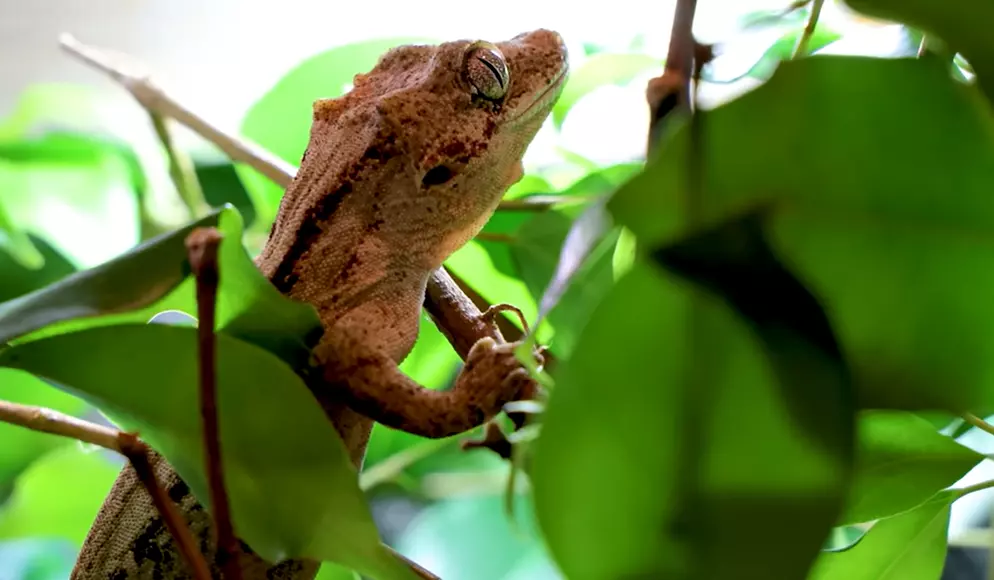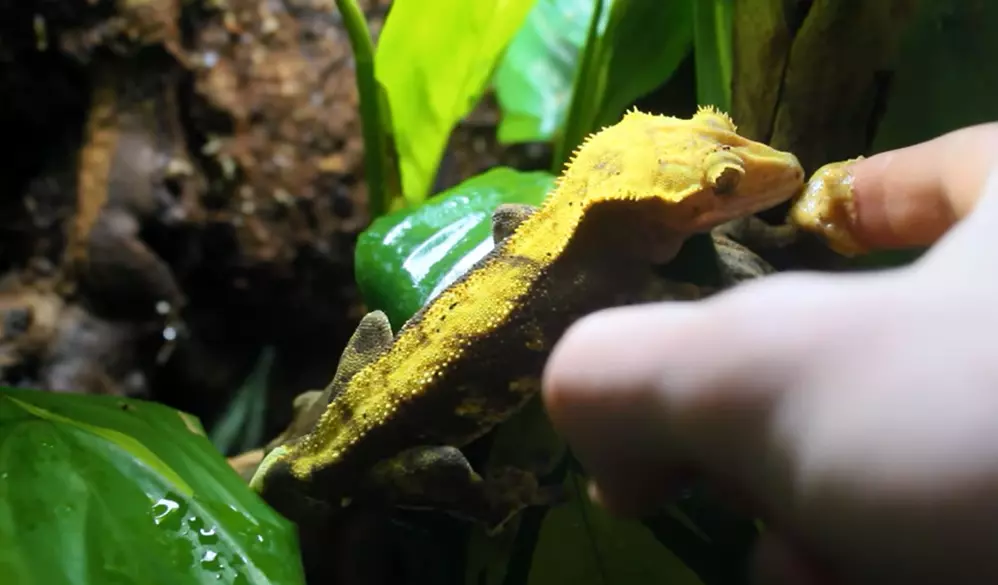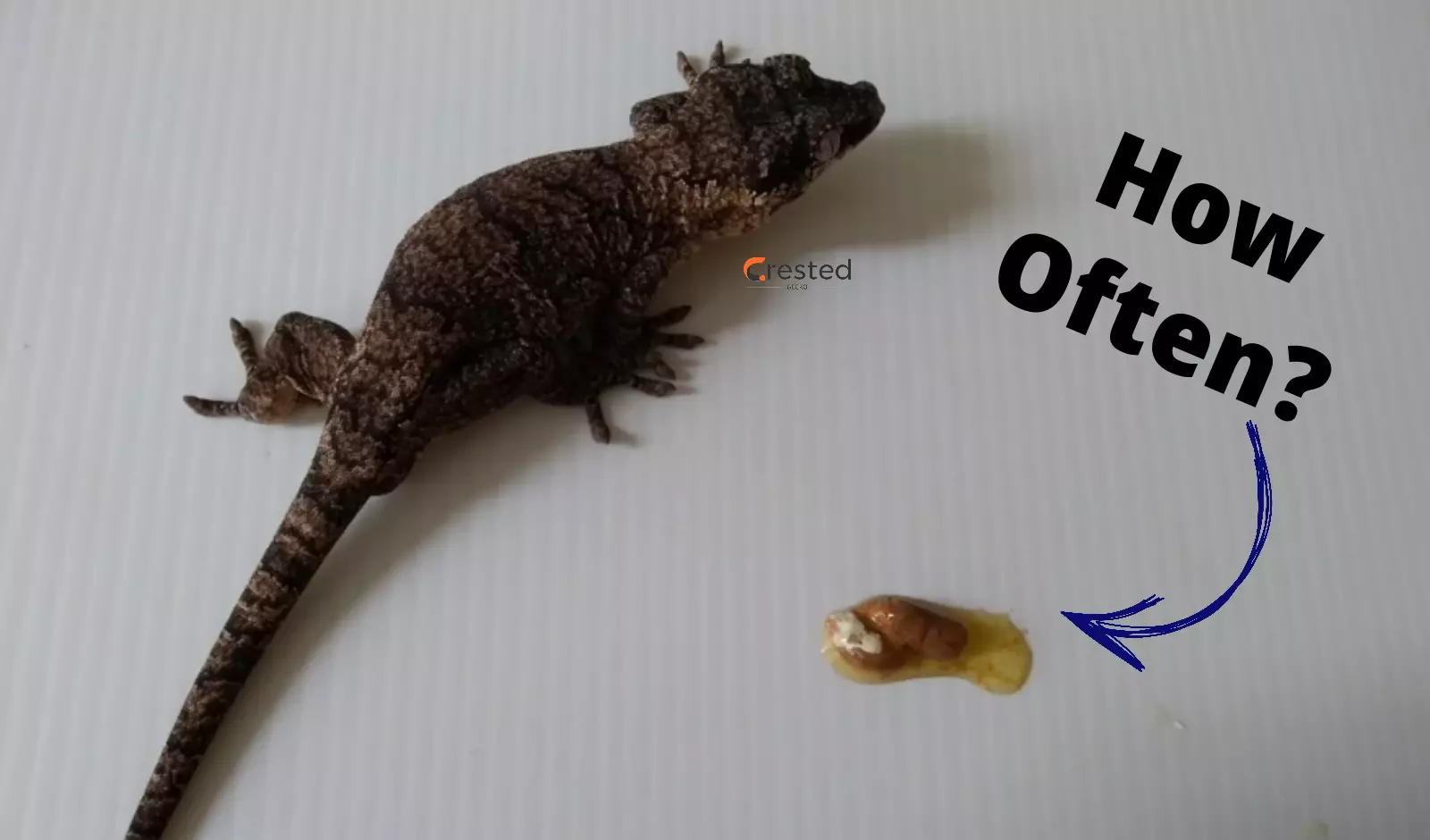One of the aspects of crested gecko care that many owners are curious about is their poop.
How often do crested geckos poop, and what does it mean for their health and well-being?
In this article, I will discuss these questions and provide some tips on how to clean and maintain their enclosure.
Let’s dive in…
How Often Do Crested Geckos Poop?

The answer to this question depends on several factors, such as,
- Age
- Diet
- Temperature
- Humidity
- And stress level.
In general, crested geckos poop as often as they eat, which can vary from once a day to once a week.
Younger geckos tend to poop more frequently than older ones, as they need more food to grow and develop.
Geckos that are fed more insects than fruits or commercial diets may also poop more often, as insects are harder to digest and produce more waste.
Environmental factors Also Matter

Temperature and humidity levels of the enclosure can also affect the frequency of their poop.
Crested geckos are ectothermic, meaning they rely on external sources of heat to regulate their body temperature.
If the enclosure is too cold or too dry, they may become less active and eat less, which can result in less poop.
On the other hand, if their enclosure is too hot or too humid, they may become dehydrated and lose electrolytes, which can cause diarrhea or constipation.
Be careful about stress

Crested geckos are sensitive animals that can easily get stressed by various factors, such as loud noises, bright lights, handling, overcrowding, or predators.
Stress can affect their appetite, digestion, and immune system, which can lead to changes in their poop habits.
For example, some geckos may poop more often or less often when they are stressed, while others may poop in unusual places or smear their poop on the walls of their enclosure.
F.A.Q.s
Q: What does crested gecko poop look like?
Crested gecko poop consists of two parts: a dark brown or black solid part, and a white or yellowish liquid part.
The solid part is the digested food, and the liquid part is the urate, which is the equivalent of urine in reptiles.
Crested gecko poop should not be too dry or too wet, and it should not have any blood, mucus, or parasites in it.
Q: How to clean crested gecko poop?
Crested gecko poop can be easily removed from the enclosure using a paper towel, a tissue, or a reptile poop scoop.
It is important to clean the poop regularly, as it can harbor bacteria and fungi that can cause infections or diseases in crested geckos.
The enclosure should also be disinfected with a reptile-safe cleaner every few weeks to prevent the buildup of germs.
Q: Do baby crested geckos poop less frequently than adults?
Yes, baby crested geckos often poop more frequently than adults, sometimes even daily, due to their faster metabolism and growth.
Q: Can diet impact the frequency of crested gecko pooping?
Yes, diet plays a significant role.


[…] the best way to tell if your gecko is eating is to check for poop. If you see poop in the cage, it means your gecko is eating and digesting its food […]